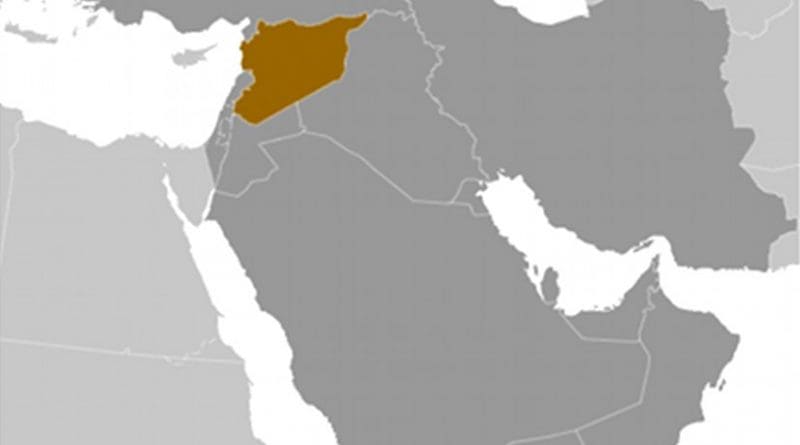Russia, Turkey And Iran Agreement Means Syria Won’t Be Broken Up
By MINA
The agreements between Russia, Turkey and Iran on the Syrian settlement will not result in the division of Syria, said Turkish political analyst and diplomat Aydin Sezer.
In late-December, Reuters reported citing sources that Syria would be divided into informal zones of regional power influence and Bashar Assad would remain president for at least a few years under a deal between Moscow, Ankara and Tehran.
“Such a deal, which would allow regional autonomy within a federal structure controlled by Assad’s Alawite sect, is in its infancy, subject to change and would need the buy-in of Assad and the rebels and, eventually, the Gulf states and the United States,” the report read.
According to Sezer, the agreements cannot result in dividing Syria into zones of influence since Russia, Turkey and Iran abide by Resolution 2254 by the UN Security Council, according to which the Syrian territorial integrity must be preserved. Moreover, Russian officials have repeatedly reaffirmed Moscow’s commitment to preserving the territorial integrity of Syria.
The updated concept of Russia’s foreign policy unveiled in early-December read that Russia stands for the peaceful settlement of the Syrian conflict, the country’s territorial integrity, independence and unity.
“Neither Turkey nor Russia does not want Syria to be divided. In the long-run Turkey will have to cooperate with Russia on Syria. This is the opinion of the Turkish government and of the Turkish people,” Sezer told RIA Novosti.
The expert also noted that despite Ankara’s ongoing calls to oust Assad its actual stance on the issue is not that hardline as it was before.
“The Kurdish Democratic Union Party (PYD) is a more serious threat to Turkey than Bashar Assad. Ankara can agree on a transition period under Assad. But in the long-run he must leave. This is what Turkey wants,” the expert said, adding that Russia and Iran has a different view of the situation.
The latest agreements on Syria were unveiled by Russian President Vladimir Putin on December 29. The three deals, brokered by Russia, Turkey and Iran, include a ceasefire agreement signed by the Syrian government and the armed opposition. The second document includes measures aimed at monitoring the truce, while the third states that signatories are ready to launch peace negotiations on resolving the years-long war.
Sezer underscored that the current ceasefire cannot be comprehensive since it involves only the so-called moderate opposition. There are various radical forces across Syria who did not join the deal.
“However, the ceasefire is a correct step. It is very important that Ankara and Moscow reaches an agreement on concrete steps on the Syrian settlement,” he added.
The analyst underscored that Russia and Turkey managed to work out a compromised approach to armed groups operating across Syria.
“Turkey labelled al-Nusra Front as a terrorist group. Ankara also plays the role of a mediator between Moscow and Syrian moderate opposition groups. One of the main issues is the Kurdish People’s Protection Units (YPG). Russia doesn’t consider the group terrorist. However, the Turkish military operation in northern Syria is aimed not only against Daesh but also against YPG. But Moscow doesn’t meddle in the situation,” Sezer pointed out.
According to the analyst, there will be no unsolvable problems between Russia and Turkey on the Syrian settlement because the main goal of the two countries is “peace and Syria’s territorial integrity.”
Vitaly Naumkin, an adviser to UN Special Envoy to Syria Staffan de Mistura, stressed that the ceasefire in Syria was possible thanks to cooperation between Moscow and Ankara, which, however, does not mean that Syrian will be divided into zones of influence.
He also pointed to Turkey’s decision to join the fight against Daesh and al-Nusra Front as a crucial step to reach the agreements.
“It’s extremely important that Turkey has agreed to join the fight against Daesh and al-Nusra Front. […] If Turkey is able to convince all armed opposition groups to join the ceasefire, while Russia and Iran make similar guarantees… If these joint guarantees work, then this will be a milestone [in resolving the Syrian crisis]. But all of the above doesn’t mean that Syria will be torn apart. We will not agree on that,” Naumkin told RIA Novosti.

